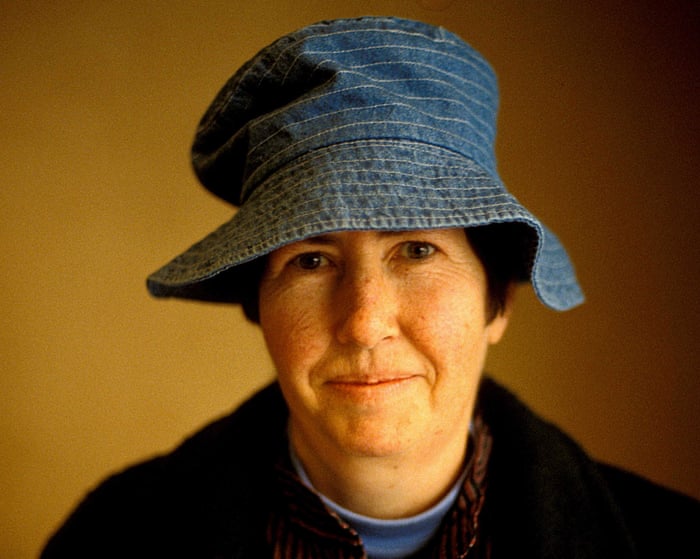There’s no denying it: Dreaming of Dead People is a profoundly unusual book. Rosalind Belben, born in 1941, began publishing in the 1970s. This novel, her fourth, originally appeared in 1979. Her eighth and most recent work, Our Horses in Egypt, won the James Tait Black Prize in 2007.
Dreaming of Dead People could be considered an early example of autofiction. Its narrator, Lavinia, is the same age as Belben was when she wrote it, and she shares a similar childhood in Dorset—including a father who was a Royal Navy commander and died when she was three. Belben has called the book “a study of the human figure,” and given its raw, personal style and autobiographical echoes, it’s easy to assume that figure is herself.
The novel is divided into six strikingly different sections: a stay in Venice, a meditation on masturbation, the euthanasia of a beloved dog, and a vivid erotic daydream about Robin Hood. At first, these parts seem disconnected—the book offers few obvious links—but on rereading, they begin to merge, revealing a deeply truthful portrait of a singular mind.
In the opening section, At Torcello, Lavinia remembers a winter trip to the Venetian island to see a Byzantine mosaic of the Virgin Mary and baby Jesus—an image of motherhood that lingers throughout the book. While there, she meets an English family whose children she later babysits during a blackout, slowly clarifying her own feelings about family and motherhood.
Venice and Torcello become strange through Lavinia’s observations: a pregnant dog, a miserable rat, canal water “dull of eye.” Her thoughts, both in the moment and in memory, are sharp and unexpected: “In that sour and barren place, a spinster, who did not wish for the dry, un-rustling grass. I weep with mortification. Yet I was extremely happy.” Belben’s fragmented sentences, ellipses, and odd punctuation force the reader to slow down and pay attention.
Lavinia is full of regrets. After nursing her mother through a long illness, she hasn’t had sex in ten years and wonders if others now see her as “not among the fuckers of this world.” She once assumed she’d marry and have children, but no one ever proposed. Today, she might not consider herself “a shrivelled person… an old maid” at 36, but the 1970s were different—making her lack of shame all the more striking: “I have woken sopping and swollen, with a devil to suppress between my legs.”
If the novel is as confessional as it seems, it’s utterly fearless. Death, aging, anorgasmia, loneliness, despair, and madness all jostle for attention—just as they do in real life, no matter how much we try to ignore them. Meanwhile, Lavinia learns to masturbate with an electric toothbrush.
The Robin Hood section shifts gears so abruptly it risks whiplash. As a child, Lavinia was drawn to the idea of forest outlaws (“the myth of the greenwood… a cosy, complete, limited life”) and loved books like BB’s Brendon Chase and Arthur Ransome’s Swallows and Amazons. But this isn’t a fairy tale—it’s a sensual, funny account of Robin Hood’s encounter with the wife of Sir Richard atte Lee, a figure from medieval ballads. Here, sexuality is pure, natural, and uncorrupted—a key part of what modern psychology might call Lavinia’s “love map.”
The EchoesReview of Dreaming of Dead People by Evie Wyld
The narrative unfolds through a series of images and memories that subtly reflect and illuminate each other, much like an Adam Curtis documentary. We see Lavinia’s complex yet loving relationship with her mother (“something stiff and unyielding, fierce and tender”) and her deep connection with animals—particularly horses and dogs, subjects that later appear in Rosalind Belben’s own books. The story reveals Lavinia’s views on death, her uneasy relationship with London, the scars left by her schooling, and her profound, sometimes euphoric bond with nature (her description of a trip to Scotland outshines most contemporary nature writing).
She imagines the daughter she never had, naming her “Jessie,” but frets over how different Jessie’s childhood would have been from her own: “She’d think a Forestry Commission plantation was just a nice place for a walk… She wouldn’t know the first thing about apples—how to pick them, how to store them—or pears.”
Through Lavinia (and Belben’s own voice), we sense her grappling with ideas she might have understood firsthand in another life: the widening gap between generations and the relentless march of time. “I worry that Jessie won’t read,” she writes (her own italics). “That would be my greatest fear.”
The book’s final pages dissolve into a vivid, carefully woven stream of consciousness, meditating on aging, mortality, solitude, and resilience—remarkable for any writer, let alone one still in her mid-thirties. The prose is breathtaking, utterly persuasive, and stands alongside Virginia Woolf’s finest work. “There comes a time to make peace with yourself,” Belben writes as Lavinia. “The life I knew is ending. I am drying up… I am saying: here is a life—what do you make of it? And trying not to mind when you look away.”
Dreaming of Dead People by Rosalind Belben is published by And Other Stories (£14.99). To support The Guardian, order your copy at guardianbookshop.com. Delivery charges may apply.



